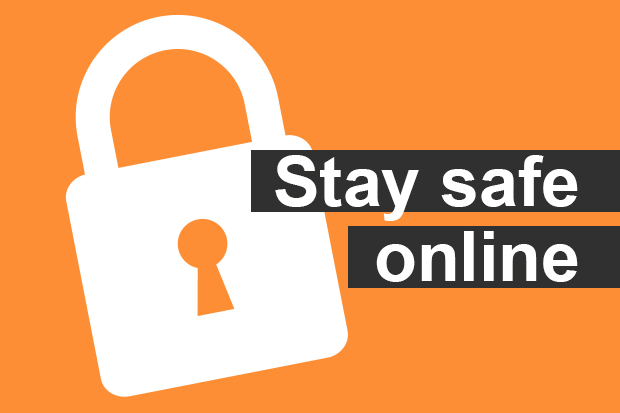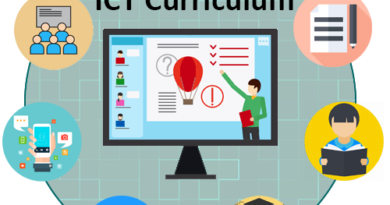Digital Citizenship: Navigating Online Responsibly & Safely
Digital Citizenship: How to Navigate the Online World with Responsibility and Safety
Introduction
Digital citizenship refers to the responsible behavior of individuals who use technology and digital platforms such as social media, online forums, blogs, and websites. It is important for individuals to be aware of their actions when using digital platforms and not take advantage of others or engage in harmful behavior. Online safety, on the other hand, includes measures taken to protect oneself from potential online threats such as cyberbullying, harassment, identity theft, and more.
In today’s world where technology plays a significant role in our daily lives, being a responsible digital citizen is more important than ever. The internet has become an integral part of how we communicate with one another and access information.
With this ease of access comes added responsibility to ensure that we are using it safely and responsibly. Being a good digital citizen means respecting others online by refraining from engaging in harmful or hateful behavior that could impact them negatively.
It also means safeguarding our personal information by taking measures to protect our identity online. All these measures will help us contribute positively to the digital world while making sure that we stay safe and secure while doing so.
Being a Good Digital Citizen
Respecting Others Online
One of the most important aspects of being a responsible digital citizen is to treat others online with respect. It’s easy to forget that there are real people behind the screens we interact with every day. Just because we can’t see their faces doesn’t mean we should be rude or hurtful.
We need to remember that our words have consequences and can have a lasting impact on others. We can show respect online by using polite language, avoiding name-calling or insults, and refraining from trolling or attacking other users.
It’s also important to be aware of cultural differences and sensitivity to issues like race, gender, and religion. By treating others with kindness and empathy, we create a more positive online community for everyone.
Being Mindful of What You Post Online
In today’s digital age, it’s easy to overshare personal information without even realizing it. But what we post online can have long-term consequences for our careers, relationships, and reputation.
That’s why it’s important to think carefully before posting anything online. Before hitting that “post” button, ask yourself: Would I want my boss or future employer to see this?
Would I want my grandmother or young niece/nephew to read this? If the answer is no, then maybe it’s best not to post it at all.
It’s also important to consider how our posts might affect others. Will this post hurt someone else’s feelings?
Could it be misinterpreted as offensive or inappropriate? By being mindful of what we share online, we can avoid unnecessary drama and maintain healthy relationships both on- and off-line.
Avoiding Cyberbullying
Cyberbullying is a serious problem that affects many people today – especially young people. It involves using technology (like social media, text messages, or emails) to harass, intimidate, or bully someone else.
Cyberbullying can have devastating effects on its victims, including depression, anxiety, and even suicide. To be a good digital citizen and avoid cyberbullying, it’s important to think before you type.
Never post anything that could be hurtful or offensive to someone else. If you see someone being bullied online – whether it’s a friend or a stranger – speak up and report the behavior to the appropriate authorities.
Remember: being a responsible digital citizen means treating others with kindness and empathy both online and offline. The internet is a powerful tool that can be used for good – but only if we use it responsibly.
Protecting Your Online Identity
Creating Strong Passwords
One of the easiest ways to protect your online identity is to create a strong password. This means using a combination of letters, numbers, and symbols that are not easily guessed or hacked. It’s also important to use a different password for each account you have, so that if one password is compromised, the others remain secure.
To make it easier to remember your passwords, consider using a passphrase instead of a single word. For example, “I love eating pizza with my friends” could become “ilEpzmfr!ends”.
Avoiding Phishing Scams
Phishing scams are attempts by hackers to trick you into revealing personal information such as your login credentials or credit card details by posing as legitimate companies or people. These scams can come in many forms including emails, pop-ups on websites, and even phone calls.
To avoid falling victim to these scams, always be wary of unsolicited messages that ask you for personal information. If you receive an email or message from someone claiming to be from a company you do business with, never click on any links in the message and never give out any personal information unless you are sure it is legitimate.
Protecting Personal Information
Protecting your personal information is another key aspect of protecting your online identity. This includes things like your name, address, phone number and social security number. Whenever possible avoid giving out this information online unless it’s absolutely necessary.
If you do need to share this information try to limit who has access it and always make sure that the website or service you’re using has appropriate security measures in place to protect this sensitive data. In addition making sure that all software on your computer is up-to-date can help prevent hackers from taking advantage of vulnerabilities in outdated software which could lead to your personal information being compromised.
Staying Safe Online
Recognizing and Avoiding Online Predators
One of the biggest threats to online safety comes from online predators. These individuals target vulnerable users, such as children or those who are lonely or looking for companionship.
They may use fake profiles or personas to gain the trust of their victims and then exploit them for their own purposes. To protect yourself from online predators, it’s essential to be cautious when communicating with strangers online.
Be wary of anyone who tries to push you into sharing personal information, sending photos, or meeting up in person before you feel comfortable. If someone makes you feel uncomfortable or pressured, it’s best to cut off communication immediately and report their behavior.
Understanding the Dangers of Oversharing
In today’s digital age, many people are quick to share information about themselves online without fully understanding the risks involved. However, oversharing can put your safety at risk by giving hackers and other cybercriminals access to sensitive information such as your home address, phone number or email address. To avoid oversharing on social media platforms such as Twitter and Facebook, it’s important to be mindful of what you post.
Limit the amount of personal information that you share publicly and consider carefully who has access to your posts. For instance, if you’re planning a trip out of town for the weekend, avoid posting about it until after you return home.
Knowing How To Report Suspicious Behavior
If you ever encounter suspicious behavior online such as cyberbullying or harassment from a stranger or predator – it’s essential that you report it immediately. Reporting suspicious behavior can help authorities track down the perpetrator and prevent them from continuing their harmful actions. Most social media platforms have built-in reporting mechanisms that allow users to flag inappropriate content or abusive behavior quickly.
Additionally, local law enforcement agencies often have dedicated cybercrime divisions that can assist you in reporting suspicious or criminal activity. Don’t hesitate to reach out for help if you feel unsafe or threatened online.
Navigating Social Media Responsibly
Understanding the Impact of Social Media on Mental Health
Social media plays a significant role in our daily lives, but it can have negative effects on our mental health. Research has shown that excessive use of social media can lead to increased feelings of anxiety, depression, and loneliness. It’s important to recognize that social media is not a true reflection of reality and that the curated content we see can be misleading.
To minimize the impact of social media on our mental well-being, it’s essential to practice self-awareness and mindfulness when using these platforms. Setting boundaries on how much time we spend on social media each day, turning off notifications and taking breaks from the screen are some ways to help regulate our social media use.
Managing Social Media Addiction
As with any other addiction, managing social media addiction requires acknowledging the problem and taking steps to address it. If you find yourself feeling anxious or stressed when not using social media or if you’re spending more time online than you intend to, it might be time for a digital detox.
It’s important to engage in activities that bring you joy while limiting your exposure to digital devices. You may try developing healthy habits like reading books, going for walks or engaging in physical exercise instead of scrolling through your feed for hours.
Balancing Privacy and Sharing on Social Media
One significant issue with using social media is balancing privacy concerns with sharing personal information online. It’s crucial to protect your personal information by making sure that only trusted friends and family have access to your private details.
Additionally, keeping track of who has access to your content by monitoring your privacy settings will help prevent strangers from accessing sensitive data about you. In general, always think twice before posting anything online; if there’s even a remote chance it could come back later as regrettable or problematic, it’s probably best to err on the side of caution and not post it at all.
Cybersecurity Basics for Everyone
Understanding Malware, Viruses, and Other Threats
When it comes to cybersecurity, one of the most commonly heard terms is malware. But what exactly is malware? Malware stands for malicious software, which includes various types of software designed to harm your computer or steal your data.
Malware can include viruses, worms, trojans, ransomware, spyware and many others. Viruses are a type of malware that infects your computer when you open an infected file or program.
They replicate themselves and spread across the system in order to damage files and corrupt data. Worms are similar to viruses but they don’t need a host file to replicate themselves; they spread through networks without user interaction.
Trojans are malware disguised as legitimate software and can infect your computer by exploiting vulnerabilities in applications or the operating system. Ransomware is a type of malware that encrypts files on your computer and then demands payment in exchange for the decryption key.
Keeping Your Devices Updated with the Latest Security Patches
Updating your devices regularly is crucial for maintaining online safety. Software updates often include security patches that address vulnerabilities found on earlier versions of the product. These patches close security loopholes which could be exploited by hackers or other cybercriminals.
But why do these vulnerabilities exist? Developers test their products thoroughly before releasing them into the market but due to new threats on the horizon every day, hackers find new ways to exploit these products from time-to-time.
Hence developers keep releasing updates every now and then with security enhancements that fill any loopholes found after release. Most modern operating systems like Windows 10 have automatic update settings enabled by default; meaning you will be notified when there’s an update available or it will download automatically if configured so in advance.
Using Antivirus Software to Protect Your Computer from Attacks
Antivirus software is designed to detect and remove computer viruses along with other types of malware. Antivirus software monitors your system for threats and will alert you if something suspicious happens. Antivirus software uses a combination of signature-based detection, behavioral analysis, and cloud-based identification to protect against threats in real-time.
Signature-based detection works by comparing data on the system with known signatures of known malware; behavioral analysis uses machine learning algorithms to detect anomalies in system behavior while cloud-based identification enables quick response times to new threats by leveraging the power of collective threat intelligence. There are many antivirus programs available in the market like Kaspersky, Norton, McAfee and many others; but make sure that you pick a reputable one which has good reviews and can provide comprehensive protection against all kinds of cyber threats.
Conclusion
In this article, we have discussed several important aspects of digital citizenship and online safety. It is vital to be a responsible digital citizen by respecting others online, being mindful of what you post, and avoiding cyberbullying. Protecting your online identity is crucial to avoid hacking or phishing scams.
Being vigilant of your personal information is key to safeguarding against identity theft. Staying safe online is also essential in today’s world.
Understanding the dangers of oversharing and recognizing online predators can help avoid devastating consequences. Knowing how to report suspicious behavior can protect not only yourself but others as well.
Navigating social media responsibly can be difficult but it’s important to balance privacy with sharing. Managing social media addiction can also positively impact mental health since social media usage has been linked to depression and anxiety.
Cybersecurity should not be taken for granted since malware, viruses, and other threats are always present. Keeping devices updated with the latest security patches and using antivirus software can protect from attacks.
Being a responsible digital citizen will help create a safer and more secure online space for everyone. By following these important tips outlined in this article, you can stay safe while enjoying all that the internet has to offer!



